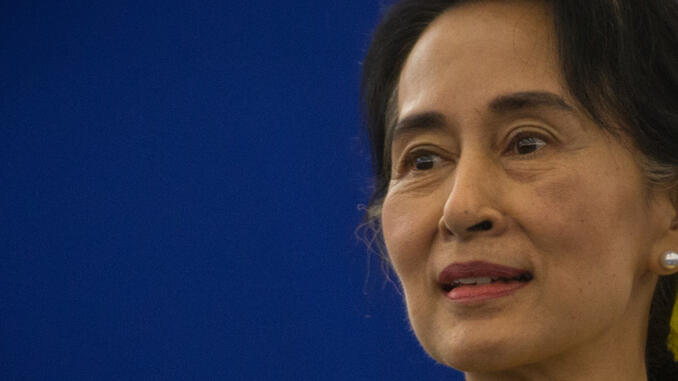
When Secretary of State Hillary Clinton first met Aung San Suu Kyi in 2011 she described her as exhibiting “qualities I had glimpsed before in other former political prisoners, including Nelson Mandela and Václav Havel. Like them, she carried the hopes of a nation on her shoulders.” Indeed, Suu Kyi came to power as a very promising figure for democracy and peace in Myanmar. Having won the Nobel Peace Prize in 1991 for her, “non-violent struggle for democracy and human rights,” she brought the world’s attention to the ongoing ethnic tensions and political suppression in her government through her time under house arrest. However, with the recent developments in the northern Rakhine State of violence, suppression, and human rights abuse, her image as a leader for peace is faltering.
The Rohingya are a small Muslim minority in Buddhist majority Myanmar (also known as Burma). For decades they have been marginalized and excluded from official government recognition. Even using the term “Rohingya” is highly frowned upon because the government feels it is an attempt to establish the group as an officially recognized indigenous group. Of all groups in the country—there are currently 135 groups officially recognized—the Rohingya suffer some of the worst discrimination and abuse. A 1982 citizenship law has barred the Rohingya from being officially recognized ever since aiding and perpetuating their disenfranchisement.
Since October of 2016, 66,000 Rohingya have fled the country to neighboring Bangladesh because of increased ethnic tensions and violence. It began with riots in 2012 that resulted in the government declaring a state of emergency. Since then 140,000 Rohingya have been placed in segregated camps “for their own security” government officials tell them. In the camps not only is their freedom of movement severely restricted, they have very little or no access to basic sanitation, health care, and education.
Out of desperation, some Rohingya turned to violence and attacked border police stations killing nine police officers last October. The attack marked the beginning of an insurgency by a group that calls itself the Harakah al-Yaqin, or Faith Movement. The insurgent group’s goals, according to the International Crises Group, are to stop the persecution of the Rohingya and to secure their rights and autonomy as Myanmar citizens.
Since the start of the insurgency, Myanmar’s security forces have responded with brutality, killing an estimated 1,000 people. The Office of the U.N. High Commissioner for Human Rights released a report last month describing the killings of adults, young children and babies, mass gang-rape, brutal beatings, disappearances, random shootings and buildings being burned down by the army, police and civilian mobs. For the report 101 Rohingya women were interviewed and of them 50 percent reported being raped or victims of sexual violence by government and opposition forces.
Of course the government denies these claims and says the evidence is “fabricated.” Journalists and non-government organizations have long since been banned from conflict zones making verification and reporting on the matter difficult. In the case of homes being burned down, the government said the Rohingya set fire to their own homes. However, satellite imagery shows that the homes were burned in a systematic way that is consistent with an advancing military force.
Aung San Suu Kyi’s response to the crisis has at best been lukewarm. Instead of drawing more attention to the crises, her actions seem to be that of wanting to sweep the situation under the rug. Last December she said in a statement that she is “committed to the resolution of the complex issues in Rakhine State,” yet she said she needs “time and space” for her efforts to have an effect. Some argue that she does not have the power to help the situation within the government. However, there are certain actions she can take immediately that can help the situation to keep it from getting worse and spreading. Pushing the government to stop denying wrongdoing, and visiting affected areas to draw attention are actions she can easily do and are certainly within her power.
Doing so little to combat human rights abuses and other atrocities in Myanmar, Aung San Suu Kyi is quickly removing herself from the likes of Nelson Mandela and Václav Havel, not to say the least undermining Myanmar’s fledgling democracy. The United States and many other powerful democracies around the world championed for her and her cause. It would be a shame to have the hope she represents dashed. At the end of their time together in 2011 as they walked in Suu Kyi’s private garden, Hillary Clinton said, “You have been an inspiration. You are standing for all the people of your country who deserve the same rights and freedoms of people everywhere.” Aung San Suu Kyi responded, “This will be the beginning a new future for us all,” but then she cautioned, “…provided we can maintain it.”
